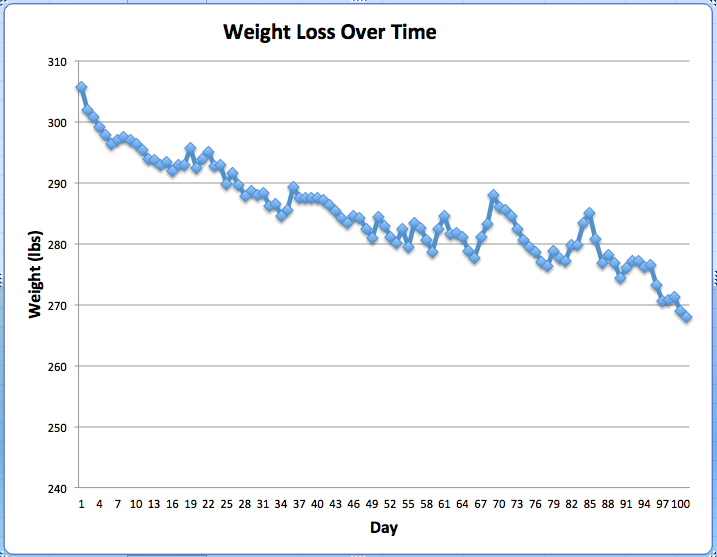5 Reasons Why Scales Aren’t The Best Measure of Progress
Numbers are a beautiful thing...
When it comes to health and fitness, numbers have the power to bestow immense feelings of achievement and satisfaction. A simple record of everything from a 1RM Squat, to 5K split times, to number of reps completed on a funky AMRAP can immediately provide us with proof that our programmes are doing what they’re supposed to!
After all, everyone f**king loves that feeling when you PB your deadlift...
But there is one number that is slightly more complicated to interpret. One that, when misunderstood or highly prioritised in one’s mind, can become incredibly detrimental to motivation, confidence, and long term adherence to an exercise/nutrition plan.
That number is scale weight...
What is Scale Weight?
Usually measured in kg or lbs (depending on whether you were born pre-70’s...), scale weight represents the amount of raw matter contained within a body. Strictly speaking, when we talk about “weight loss” or “weight gain”, what we are really talking about is mass.
When we step on the scales, the number displayed conveys the mass of everything that constitutes the human body: muscles, bones, organs, water, food held within the gut. Everything.
Now, when recorded accurately (same time, same scales, same environment), over an extended time period (e.g. every week for 4 months), and interpreted correctly, scale weight can indeed be a good indicator of the effectiveness of an exercise/nutrition plan.
Obviously, if your goal is to lose weight, and the number shows a downward trend over time, it stands to reason that your programme is on the money. Likewise if you want to gain mass and the trend goes upwards.
However, rarely are all three criteria of accurate measurement met, particularly with regards to understanding the numbers and what they mean.
Therefore, I wanted to write an article about how fixating too hard on the scales may prove detrimental to your mindset, and how alternative methods of measuring progress may be much more helpful in achieving your goals.
Here’s 5 Reasons Why...
The Trap of Obsession
When someone’s primary goal is to lose X amount of weight, they start by weighing themselves once a week to see whether their diet and training is doing the trick. As the number begins to fall, it is easy to find satisfaction and self-approval as a result of this apparent success.
Because of that first win on the weight loss front, many will decide to weigh themselves once every other day in order to feel that satisfaction more often. Every other day can become every day, and before you know it, you’ll be stuck in a horrible trap of obsessional behaviour whereby it is imperative to step on the scales 3 times a day.
Now, this downward spiral of negative thinking doesn’t occur with everyone; however, I have come across it quite a few times in my career as a PT. What I have learnt is that there seems to be a correlation between those who fixate on scale weight as their number 1 goal, and those who experience a steady fall into the trap of obsession.
Furthermore, having previously suffered with anorexia, I can personally testify to the grim realities of obsessing about scale weight. It is something that consumes your every thought and takes over your life to a point at which a single number dictates exactly what you eat, and how you exercise within a given day.
Long story short, I have felt the Trap in its full force, and I wouldn’t wish it on my worst enemy!
If you do have a specific weight-loss goal, I am not saying put it to bed completely. Indeed, having it as a secondary goal is, in my experience with clients, very successful in giving someone direction and motivation. However, in order to avoid the Trap, make your overarching (primary) goal something other than scale weight. Here are some first-hand examples of primary goals that have led to success with clients past and present:
- “I want to be able fit into the dress I wore at my sisters wedding”
- “I want to feel comfortable wearing a swimsuit on the beach this summer”
- “ I want to get into a regular routine of exercising 3-4 times a week”
With all of the goals above, achieving a specific scale weight was a secondary goal for each client. However, with the primary emphasis taken away from scale weight, none of them fell into the trap. I should add that each one absolutely smashed their goal to pieces!
See Related : The Making & The Breaking Of Me
Frequent Fluctuation

If you observe any graph showing successful long-term weight loss, you will notice that it is never a straight line. The rate at which weight loss occurs is never linear, and jumps about week-on-week depending on an endless list of variables....
Therefore, putting all of your motivational eggs in the weight-basket can lead to feelings of disappointment on a regular basis, which may in turn lead to throwing in the towel full stop.
For example, you tend to find that during the primary stages of a weight loss programme, the number will fall dramatically at first, before slowing down to a more steady rate. If the big, initial drop in weight was the driving force behind your adherence to a programme, then subsequent weeks may prove tough in mustering the motivation to continue.
Weight change is never linear, and should therefore be viewed in the context of a long period of time
Harry Gripper
The solutions? Same as #1 : keep it as a secondary goal, and understand that weight loss/gain is never linear. Furthermore, if you are going to interpret your progress through scale weight, make sure you view it in the context of a longer period of time. For example, looking at the trend over 3 months, taking measurements 2 x per week under the same conditions.
What About Body Comp?!
Ever heard that old saying that “muscle weighs more than fat”? Although this is pretty much entirely false, its essence does bear a wee bit of truth. The accurate alternative would be to say “muscle is much denser than fat”.
What does this mean? Well, much like a kilo of feathers weighs the same as a kilo of lead, the same can be said of muscle and fat. After all, a kilo is a kilo regardless of what you are dealing with!

However, due to its higher density, that same kilo of muscle mass will take up less space than the fat. This therefore explains why, if you are 4-6 weeks into an exercise programme and your clothes are feeling much looser, you look slimmer, and you can see more definition, you may in fact weigh exactly the same (sometimes even a little bit more!).
This is something I have come across countless times in the past; clients who say how great they are feeling about their physique, and who’s old clothes are feeling much baggier, only to express an overwhelming disappointment in the lack of movement on the scales front.
It’s a real shame to see a tidal wave of positivity only to be quashed by a single number; one that doesn’t even tell the whole story with regards to body recomposition.
For this problem, I’d recommend using other body measurements to get a better picture of how your body is changing, for example waist size (which you can make even more reliable by working out your waist-hip ratio).
Alternatively, if you can, use ‘Smart Scales’ that use Bioelectrical pulses to measure accurate markers of body composition.
Think of scale weight as the cover of your favourite book: it may give a rough insight into the narrative that follows, but fails to tell you the entire story...
Harry Gripper
Take Care of the Pennies, and the Pounds Will Take Care of Themselves
There’s a reason your Ma told you this when you were wee: it can hold truth in many scenarios other than saving for a games console. Including scale weight...
Fixating on the lack of movement in the number on the scales, as previously discussed, can lead to debilitating and disappointing thoughts towards your fitness, nutrition, and lifestyle. Much like the avid young gamer pining over the console he can’t afford, its easy to focus on the weight loss you haven’t (as of yet) been able to achieve.
Much like the avid young gamer pining over the console he can’t afford, its easy to focus on the weight loss you haven’t (as of yet) been able to achieve...
BUT, as the gamer heeds his Ma’s advice and saves over a long period of time to finally afford his dream, a person looking to lose weight should focus on implementing small changes to their routine and lifestyle (i.e. the pennies) and, over time, these changes will accumulate to achieve the ultimate result of sustainable long-term weight loss.
To whip another banging cliche out the bag: “value the process”
Solution #4 - shift your focus away from the scale weight towards change-implementation. It could be to get up an hour earlier 3-4 x per week to get some exercise in before work, or it could be swapping your mid-morning doughnut for an apple and peanut butter. Whatever it may be, concentrate on nailing the things you have complete control over on a daily basis, and the number on the scales will take care of itself.
Final cliche, I promise:
“Patience is a virtue”
Anon
Performance Markers
Similarly to #3, the scales don’t tell the full story in terms of what you get up to in the gym or on the road.
Performance markers are, in my opinion, the best way to measure one’s progress. They are unique in the way in which you can manipulate them to suit your own preferences; if you enjoy running, use a 5k time trail as your measure, whereas if you (for some unholy reason) love squatting heavy sh*t, crack on with testing your 3 rep-max every 4-6 weeks.

As a PT, there is no feeling more satisfying than seeing a client absolutely smash a PR; indeed, I don’t think I’ve ever seen a broader smile on one of my athlete’s faces then when they hit a big PB n the deadlift platform.
To further the analogy from earlier, think of these measures as many ‘pennies’; the things you can do on the reg to get the scale number to fall.
Celebrate the little wins you have during gym sessions; even the smallest of improvements in performance (e.g. one more rep on an AMRAP) is one more step towards your goal.
AND, most importantly, don’t let scale weight detract from the things you achieve on your training. Lifting heavier and running faster will get you to where you want to be. Trust me.
The Final Word
When recorded and interpreted accurately, scale weight can be a great way to track your gains.
However, hopefully you now understand that there is much more to your progress than the number; things to consider, and alternative methods of measurement that may prove much more motivating in the long term.
Coming from someone who, once upon a time, let the number on the scales dictate my every action in this life, don’t let a healthy interest in how your diet and training is changing your body become an unhealthy obsession...
Need Some Extra Support with your Health and Fitness? Then Get in Touch & Join the Dream Team!
Contact me at gripperpt@gmail.com or 07399 616 822
